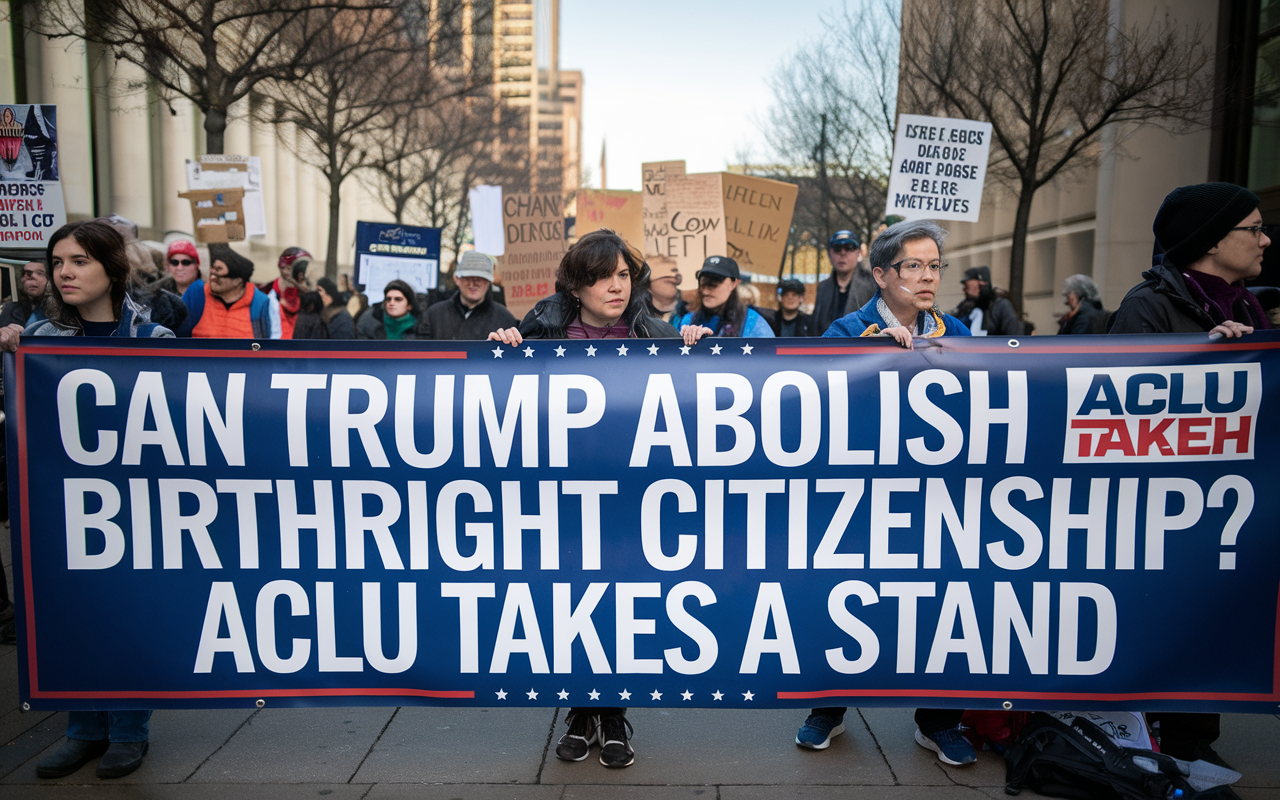Can Trump End Birthright Citizenship? ACLU Fights Back! ✊🇺🇸
On January 20, 2025, a storm brewed over a significant executive order signed by former President Donald Trump, aiming to abolish birthright citizenship for children born in the United States to non-citizen parents. This contentious move has sparked a fierce legal battle, with the ACLU stepping up to challenge this "unconstitutional" order. Let’s dive deeper into this matter and unveil its implications! 🔍
The Controversial Executive Order
The executive order, referred to as "PROTECTING THE MEANING AND VALUE OF AMERICAN CITIZENSHIP," alters the interpretation of the 14th Amendment. According to Trump, the amendment's language regarding birthright citizenship only applies to individuals whose parents are U.S. citizens or lawful residents. This assertion raises alarms as it fundamentally challenges the principles that have underpinned American citizenship for generations. 🤔
ACLU’s Legal Challenge
The American Civil Liberties Union took immediate action, filing a lawsuit asserting that Trump's order contradicts the Constitution and federal law. ACLU executive director, Anthony Romero, labeled it a "reckless and ruthless repudiation of American values." He warns that it risks creating a permanent subclass of individuals denied full rights simply due to their parentage. 😡
Historical Context
Birthright citizenship was established in the aftermath of the Civil War through the 14th Amendment, which states, "All persons born or naturalized in the United States, and subject to the jurisdiction thereof, are citizens of the United States." This interpretation has withstood the test of time, with landmark cases like U.S. v. Wong Kim Ark affirming its validity.
The amendment excludes children born to foreign diplomats, but its reach has historically covered all others, including those born to undocumented immigrants. 🚼
The Fight Ahead
The ACLU’s lawsuit includes personal stories from plaintiffs, such as a DACA recipient and asylum seekers who could face dire consequences if their children are denied citizenship. Notably, the federal courts involved are known for their progressive leanings, which could bode well for the ACLU’s case. However, with the Supreme Court's current dynamic, the outcome remains uncertain. ⚖️
My Take
This executive order and the subsequent legal responses highlight a critical moment not just for immigration policy, but for the foundational rights of American citizens, regardless of their parents' status. As we navigate this complex issue, it's incumbent upon us as a society to uphold the values of equality and inclusion that define America. The battle for rights, especially for the most vulnerable, is far from over—and our vigilance is essential! 💪🌍
Stay tuned as this story develops. Do you think birthright citizenship should be a fundamental right? Let us know your thoughts in the comments below! 👇
Feel free to engage with this post by sharing your perspectives and experiences related to citizenship and immigration. Together, let’s advocate for justice and inclusivity!
Hashtags
[#BirthrightCitizenship #ACLU]

More Stories
Exciting News: The Summer I Turned Pretty is Becoming a Movie
Reflecting on Robert Redford’s Legacy of Integrity and Artistry
Sara Rivers Appeals Dismissal of $60 Million Lawsuit Against Sean Combs: A Fight for Justice in the Entertainment Industry